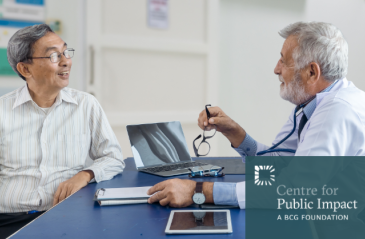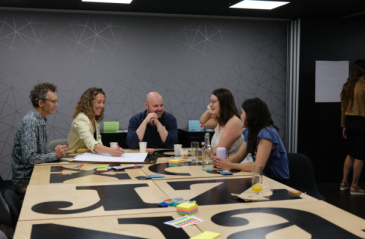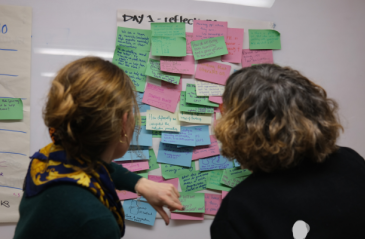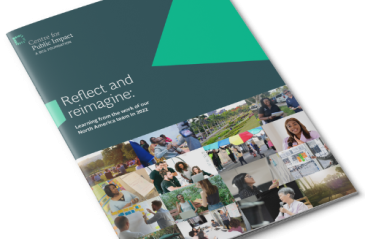
Latrobe Health Advocate: Fostering equitable and healthy societies through international collaboration

The UK’s manufacturing and agriculture industries struggle to compete with cheaper imports
Share articleThe National Institute for Health Research is the UK's major funder of life science research
Share articleIt pays to invest in know-how. If a government does so, the public impact it seeks will follow
Share articleWe put our vision for government into practice through learning partner projects that align with our values and help reimagine government so that it works for everyone.
Remember the years before the global financial crisis? It seems a while ago, certainly in the UK anyway. Austerity has been the watchword for a while.
My country's finance minister George Osborne recently set out government spending plans for the next four years. And he protected some key areas. International Development, for example, remains a priority. So too did investment in key services like the police. And science had its budget protected, including £5 billion invested in health research and development.
Perhaps, though, we in the UK's scientific community should not have been surprised. According to Ricardo Hausmann, professor of the practice of economic development at the Harvard Kennedy School, “Prosperous societies are those that have the knowledge to make a larger variety of more complex products” - maybe the government is thinking along these lines?
It's a pertinent question as the UK's manufacturing and agriculture industries struggle to compete with cheaper imports from developing countries. With this in mind, how will the country compete with the meteoric rise of the BRIC nations and, indeed, other developed countries? The answer lies with our people, our knowledge, our infrastructure and capabilities: our know-how. This “product” is entirely unique to the UK.
Hausmann highlighted that know-how is developed not only by having considerable explicit knowledge, gained from education, but also by holding a wealth of tacit knowledge. You could read the right books about how to fly a plane. However, most of us still prefer to be flown by someone with the tacit knowledge achieved from years of experience in the pilot's seat: a pilot with know-how.
The UK has a long history of world-leading research. We represent 1% of the world's population, attract 3% of global funding for research, but according to the Organisation for Economic Development and Cooperation we are responsible for more than 14% of the world's most highly cited research papers. Yet this is just part of the picture. Research funding produces far more than just publications; it creates know-how in society that can improve national health, stimulate economic growth and deliver the public impact we all aspire to.
As government decides where to focus its budget, investment in knowledge is becoming increasingly important. The know-how within the life sciences ecosystem is clearly a unique selling point for the UK, which is already a global hunger to work with our experts. As science becomes ever more specialised, these global collaborations prove increasingly vital.
The National Institute for Health Research (NIHR) is the major funder of life science research in the UK and supports a unique “package” of people and infrastructure that is attracting investment into the country. Investment is particularly evident in the translation of important breakthroughs from the laboratory to the patient.
Since it was founded in 2006, the NIHR has established biomedical research facilities to speed up this translational process. In 2014-15 alone, England's NIHR biomedical research facilities brought in £130 million of industry funding; an increase of more than 30% on the previous year. The NIHR also has an Office for Clinical Research Infrastructure (NOCRI) to organise and aggregate capabilities nationally and provide a point of access for industry.
By matching some of the world's best medical and research know-how within academia and industry, we are transforming scientific breakthroughs into life-saving treatments for patients more effectively. This ability to coordinate scientific capabilities and collaborate on a national scale is a unique selling point that no other country has managed to achieve so far.
The message is clear: it pays to invest in know-how. If a government does so, the public impact it seeks will surely follow.
This commentary is based on an article that first appeared in The Times Higher Education Supplement.









